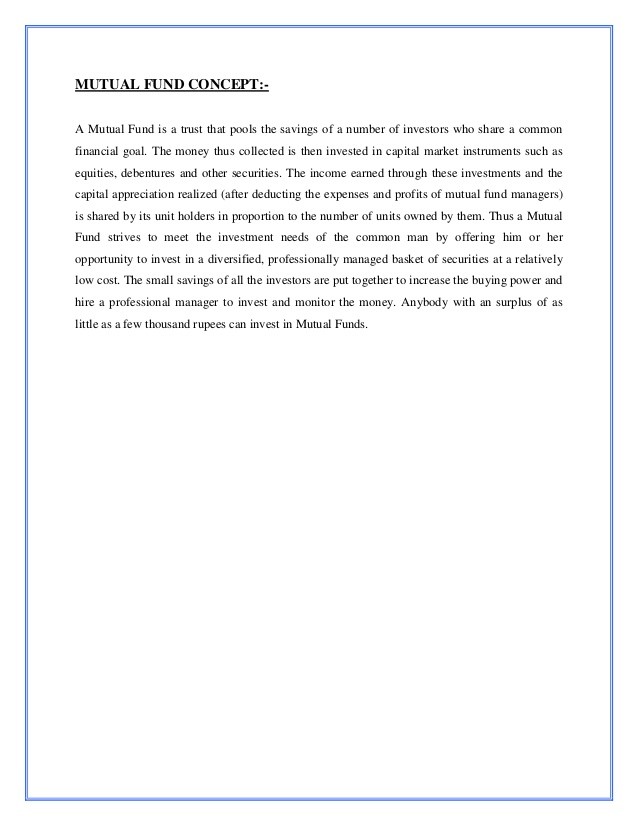General Stock Investment Strategies After Hours Trading Mutual Funds mutual fund investors
Post on: 23 Апрель, 2015 No Comment

Advertisement
Question
Hello:
I want to thank you for your reply.
With all of the current controversy pertaining to mutual funds, are they still a good investment? Would you recommend investing with them?
I thank you for your reply.
Followup To
Question -
Hello:
Why is it discouraged for mutual fund companies to trade after hours, and how does this activity negatively affect mutual fund investors who invest with a company that trades after hours?
I thank you for your reply.
Answer -
Hello-
I’m assuming you’re talking about the late-trading problems that the regulators are investigating. After-hours trading refers to trading stocks outside of the normal exchanges, after the market close, and that’s perfectly legal.
The problem comes about because of a flaw with mutual funds: the price per share or NAV (net asset value) of the fund is set only once per day, based on the closing price of all the investments held by the fund. If you buy or sell shares on a given date, you need to get your order in before the 4:00 market close, and you’ll buy or sell at that date’s closing price. That’s fair because at that instant, that’s what the mutual fund shares are worth.
Imagine though that the price is set at the 4:00 PM close, and then at 5:10 PM some event happens that you know will affect the price of the investments held by the mutual fund. Extreme example: imagine at 5:10 a plane flies into the Capital building.
You know very well that stocks will drop the next day, so the value of your mutual fund would drop. What if you could sneak in a sell order and get today’s price for your mutual fund shares, even though the market was closed? You’d have the benefit of today’s pricing. You could even buy back the shares the next day at the lower price.
That’s cheating, because the fund manager sells investments to provide cash for your redemption request, and he’ll sell at lower prices. The result is that everyone left in the fund is cheated out of those dollars.
That’s just an example but that’s the general idea, you have people selling or buying funds based on new information, and doing so after the close of market, which is supposed to be the cutoff for placing those fund trades. In some situations and with a lot of money moving around, it would yield large profits, right out of the pockets of the shareholders who were holding the fund throughout. This was done a lot, apparently, with foreign-stock mutual funds, where events would happen after the US market close simply because of the time-zone differences between US and foreign markets.
Answer
Don’t throw out the baby with the bathwater. For funds involved in the scandals, where it seems they weren’t looking out for the investors, it raises some real questions. Not all fund companies were involved — eg the two largest, Vanguard and Fidelity, had nothing to do with it.














